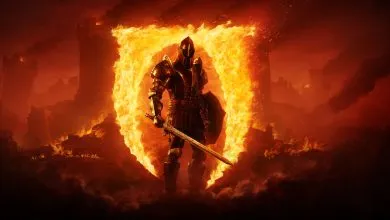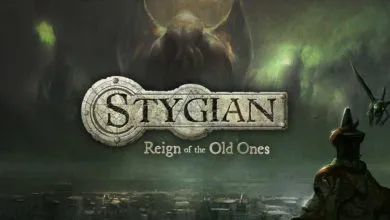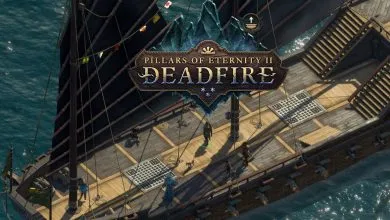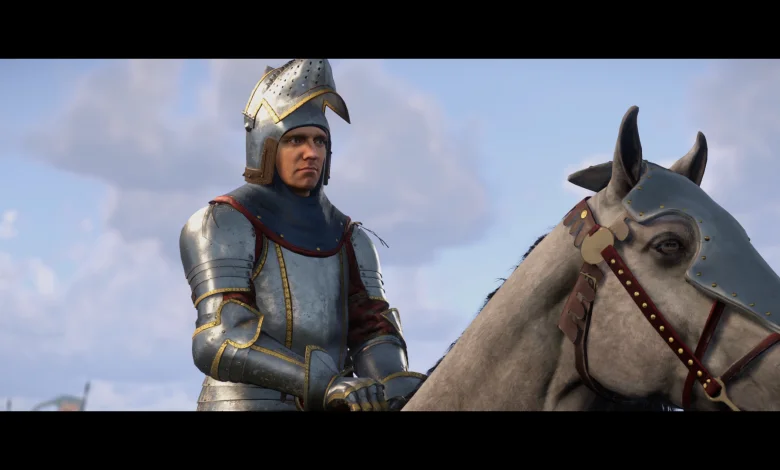
KINGDOM COME: DELIVERANCE II Review
It's been seven years since the release of Warhorse Studios' Kingdom Come: Deliverance. Seven long and tumultuous years since the glorious moment when God, in His infinite wisdom, decided that it was time for us sinners to finally be redeemed, at least for a little while, from our miserable lives through a journey to 15th century Bohemia. Seven dark years full of uncertainty and anticipation as to when the time would finally come for Henry of Skalitz's journey to continue on our screens, a journey that saw him tread through fire, blood and steel, and from being a simple peasant in the charred ruins of his hometown to becoming a hardened warrior and an instrument of the forces capable of transforming the destiny of Bohemia, the Holy Roman Empire, and perhaps the whole of Europe. That time, my brothers in Christ, has come. Kingdom Come: Deliverance II is finally here!
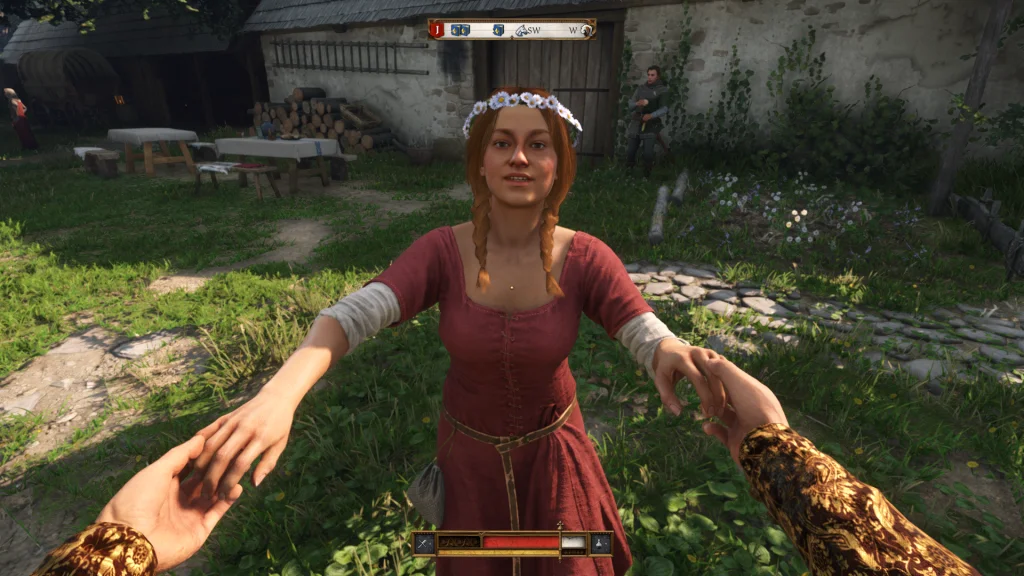
The main gameplay features and the new mechanics that the sequel introduces to the KCD formula have been more or less already analyzed in the preview article from a few weeks ago, which I suggest you read to find out what it's all about. This review will mainly deal with what couldn't be said in the preview, and with the general impressions that emerged after completing KCD2 after about 120 hours of playtime.
In Medias Res
The game's intro features an action setpiece that takes place... just before the game's finale. In it we see old friends, such as Hans Capon and the legendary Father Godwin, fighting alongside new and unknown characters, defending a castle under siege. At the climax of this setpiece we see a "several weeks earlier..." message on-screen, the action shifts to the "present", and from then on the game's plot is essentially the events leading from the first KCD's ending to the above siege, and its outcome.
This introductory siege probably sets the stage for what will follow in the game, as everything we see in KCD2 seems to be a much more enhanced version of the similar elements seen in KCD. This is also justified by the clearly higher stakes of the plot compared to KCD. After all, the events in the first game were just one piece of the puzzle that is the political situation in Bohemia, and now in KCD2 we see the biggest players in the wider political game being actively involved, with all that this entails.
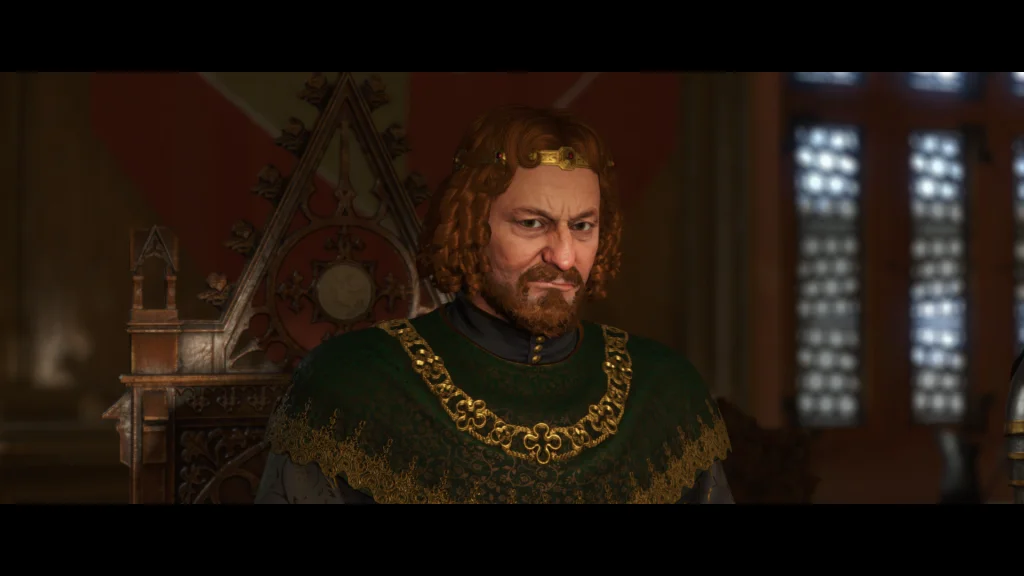
Thus, in terms of action, the battles in KCD2, the sieges, the number of soldiers involved and the weaponry they use, make the similar scenes in KCD seem like mere local skirmishes. And the staging and broader portrayal of these scenes truly elevates KCD2 to the status of a cinematic masterpiece. A similar enhancement is also observed in the overall world design. The game's 2 maps (the first being the area around Trosky Castle, the second the area around the town of Kuttenberg, with the option to travel between the 2 after a certain plot point) create a game world that is essentially twice the size (!) of KCD's world.
Of course, alongside the political machinations at the top level, KCD is also about Henry's personal story. And here too there is a similar enhancement compared to KCD. On one hand, purely in terms of content, we see Henry becoming an even more important player (to the extent his social status allows, obviously), associating with top figures, taking on critical and highly dangerous (and equally impressive and memorable) missions, and further enhancing his abilities, both socially and martially. We also see the conclusion of most of the open story fronts that KCD left unresolved, particularly in regards to Henry's pursuit of revenge against those involved in Skalitz's destruction and the death of his parents.
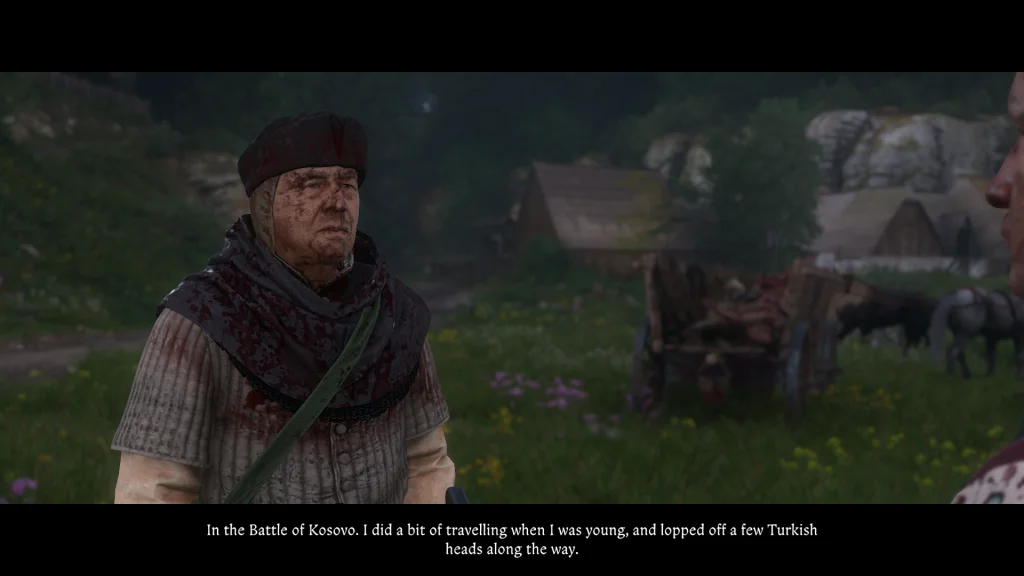
On the other hand, and in direct relation to the above, comes what is in my opinion one of the most important additions to KCD2. Among all the battles that take place in the game, there is also the battle for Henry's soul. He must choose between remaining a good Christian, faithful to his father's principles and teachings, or fully embracing a "the ends justify the means" philosophy and doing everything possible to achieve his revenge against those who have harmed him. In this light, the main plot's major quests offer choices as to their outcome (with some of these requiring the fulfillment of optional objectives), with varying short-term and long-term results.
Whether we choose to kill someone or let them live, whether we allow a villainous character to defend himself in combat or kill him while he is unarmed and defenceless, whether we raze a village where enemy soldiers are based but which is also inhabited by many innocent peasants, whether to be fair and impartial or to seek moral shortcuts to achieve Henry's goals, all of the above more or less influence the plot and Henry's condition in the game's finale. It's true that, despite its greatness as a game, the first KCD featured a main plot that was ultimately highly linear, and the ability in KCD2 to make small choices that affect things even a little bit is highly welcome for me. It goes without saying that the above, combined with the options and multiple outcomes that are present in most sidequests anyway, also increases the game's replayability.
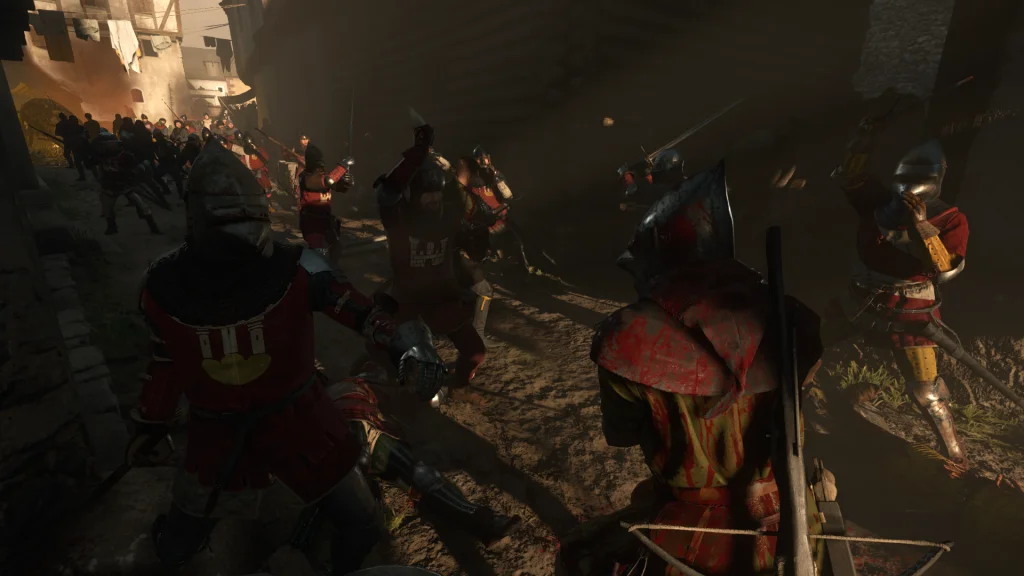
Mons Kutna
Special mention should be made of Kuttenberg, the wider area of which we visit after about halfway through the game, once we have fulfilled our obligations around Trosky Castle in the context of the plot. At the time the game takes place, Kuttenberg is the second most important city in Bohemia only after Prague itself, as it is home to the silver mines, foundries and mints where the Prague Groschen, one of Central Europe's most popular coins (and the monetary unit of KCD) is produced. The city's importance is also reflected in its in-game depiction, as Kuttenberg in KCD2 is by far the largest and richest city we visit over the course of the 2 games.
The walled city and its surroundings occupy a huge area on the map. We can find there a plethora of shops, inns, baths, guilds, warehouses, houses for peasants and nobles, with many of the above locations offering many sidequests or other tasks to complete. Perhaps most impressively, the city also has an extensive system of underground tunnels, which were the older silver mines and have now largely fallen into disuse and are used mostly by various shadowy individuals who prefer to move quietly and out of sight of the law. These tunnels are maze-like and we will be called to visit them as part of the main plot and various side-quests, or simply for sandbox exploration and locating profitable points of interest.
Having spent several dozen hours wandering around it, I can say that Kuttenberg is one of the most beautiful cities I've ever visited in an RPG. With its realistic (to the extent possible) design with its walls and guarded gates, its trade districts lined with shops or all kinds, the piles of trash that accumulate outside the walls, the many wandering inhabitants, the inns filled with patrons every night, the fair-shaped workers who offer their services in the baths, the network of underground tunnels, the many and varied quests we undertake there, and the equally many secrets there are to be discovered, I literally couldn't get enough of wandering its streets. Obviously the game's excellent audio-visual aspect helps a lot too, which was already at a high level in KCD but reaches new hights in 2.
Adveniat Regnum Tuum
It becomes clear that KCD2 offers exactly what fans of the first game loved, and to a highly enriched degree. The gorgeous depiction of early 15th century Bohemia, with its villages, forests, rivers, towns, wandering travellers, merchants and bandits, the political play around the dynastic feud between Sigismund, Wenceslas and their supporters, Henry, Sir Hans, Father Godwin and the other beloved characters, the "hardcore" gameplay mechanics (I should note at this point that KCD's save system with Saviour Schnapps is implemented unchanged in KCD2, but I think that now the automatic saves during all quests are much more frequent than in 1), elements that are further enriched with a huge world map dotted with locations, quests (with multiple possible endings), mini-games and other activities, with enemies to kill, animals to hunt, beautiful women to court, with impressive action setpieces involving numerous troops, with well-written new characters, with some truly memorable quests that will surely be talked about for a long time, with obligatory doses of humor, and with increased RP possibilities to suit our desires.
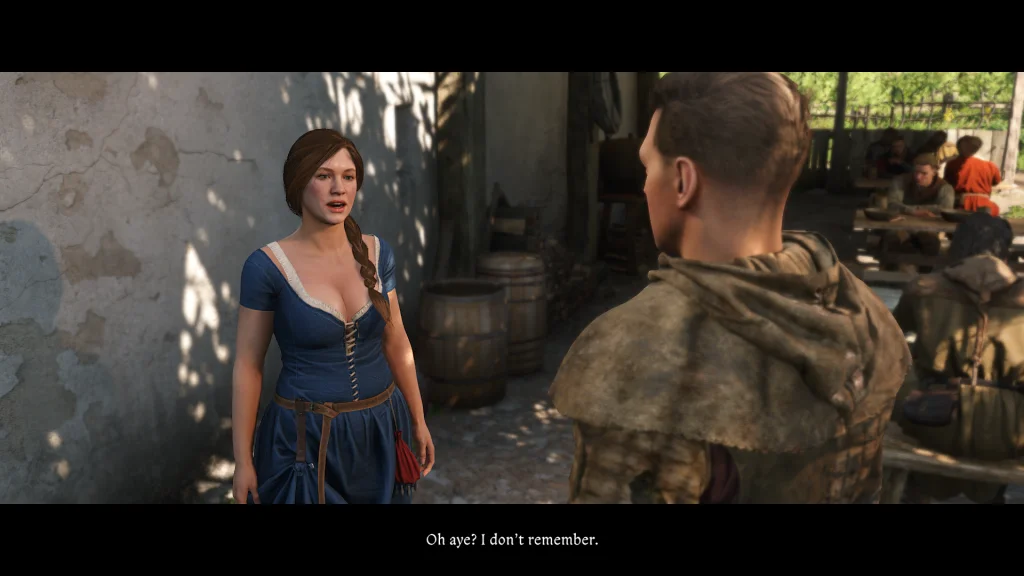
I try to find flaws and the truth is that very few things come to mind. I didn't encounter any gamebreaking bugs, some minimal glitches are fixed with the latest megapatch that precedes the full release, and the game in general is technically sound with all graphics settings at Ultra. Some sources of annoyance can be pointed out in regards to the guards' telepathy when tracking us down after some illegal activity - you rob something or kill someone at one end of the map and seemingly in the middle of nowhere, and once you reach Kuttenberg the guards will stop you at the gates because "someone saw you moving suspiciously around a theft/murder scene". Obviously we can escape using the proper speech checks, but even so it seems a bit odd that they can spot us so easily under these circumstances.
Also a funny phenomenon I encountered is that when I was fast traveling to Kuttenberg the game massively spawned many NPCs around me who would start roaming immediately afterwards. This may be done deliberately to increase the impression of a large crowd wandering around the city, or it may be due to a glitch in the engine, but either way it seemed pretty funny at the time. Finally, given the title's desire for "fidelity to the historical reality of the time", the truth is that some "non-historically real" creative decisions have been made by the developers in order to enrich the narrative (for example, Kuttenberg appears to have an extensive Jewish quarter with its own synagogue, which was not the case in the "real" Kuttenberg of the time), but these features still manage to be implemented in a convincing way that "makes sense" within the context of the world, and are just nitpicks compared to the larger quality of the game.
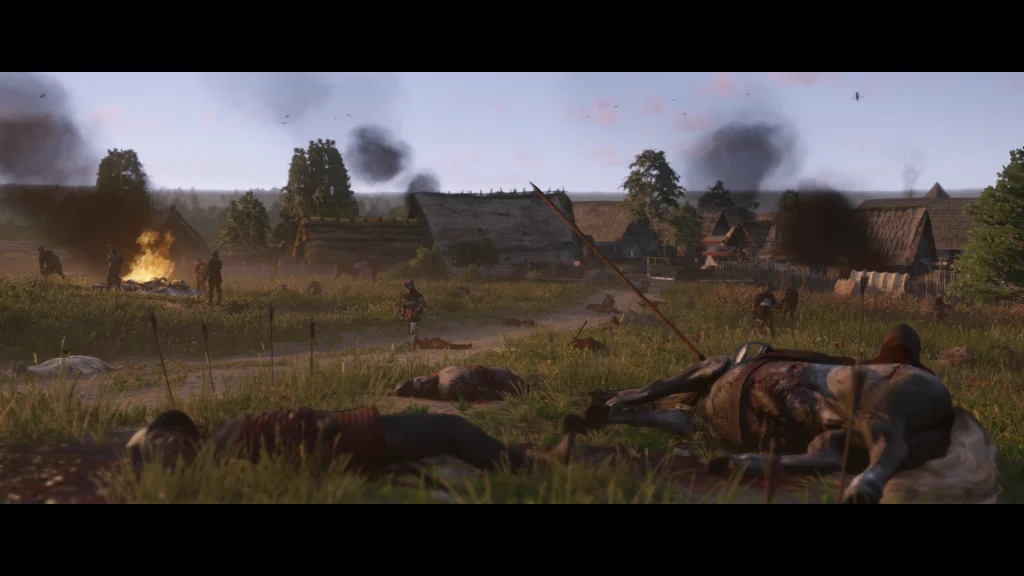
In general I could say that the existence of KCD2 makes me... almost a little envious. As is the case with the larger dynastic strife in the game, there are throughout the medieval history of Europe countless similar stories that are both interesting but also more or less unknown to the general public beyond the countries directly involved, and which could form the basis for some excellent RPGs. Of all these stories, the developers of Warhorse were smart and inspired enough to take some that involve their own country and create excellent games around them that honor their past while promoting it to the non-knowledgeable. Well, I can't help but feel a little like... "I want one of those for MY country too" (imagine, for example, a game on the same scale as KCD but set in 11th century Eastern Roman Empire, with realistic depictions of Constantinople or Thessaloniki - any publishers taking notes?). But in any case, regardless of country and nationality, we can't help but feel lucky to experience European gaming masterpieces like KCD2, which transport us through time and space, even if only for a few tens-hundreds of hours, to the heart of events that had a decisive impact on the history of the Old Continent. May we experience more!
RATING - 93%
93%
Magnum Opus
A cinematic masterpiece and a landmark game among European historical RPGs.

